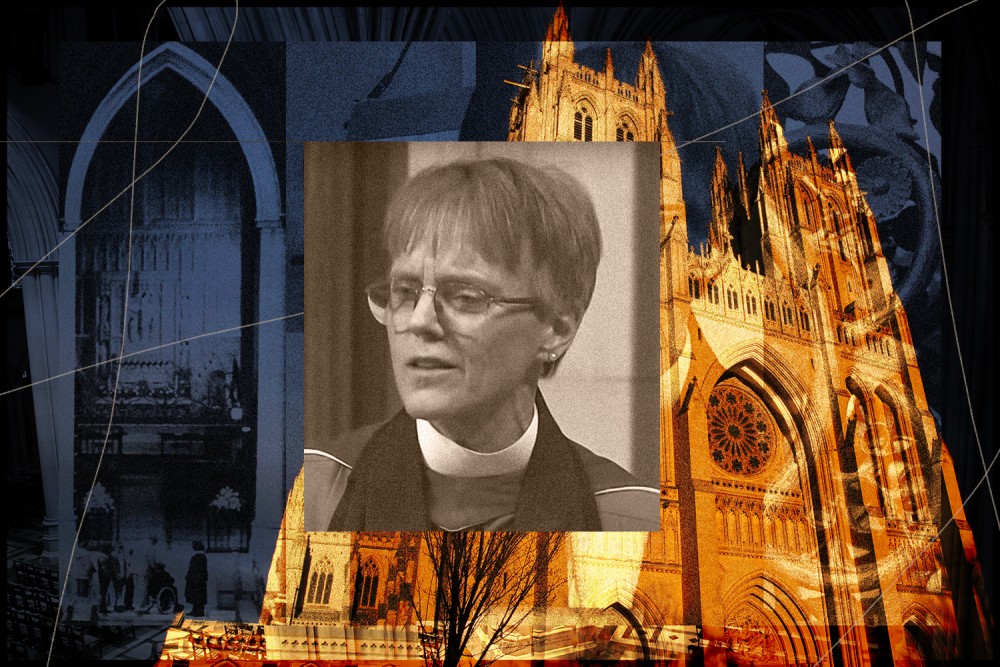Mariann Budde stoked fires of mercy
It’s been said that a sermon should be judged by its impact beyond the moment when it’s preached. In the last month, the bishop’s sermon at the National Cathedral has been making a difference.

Century illustration
I’ve been to the National Cathedral twice, both times for preaching workshops cosponsored by the now defunct College of Preachers and the nascent Young Clergy Women International. I was queasy with pregnancy hormones and dizzy with prenatal anxiety during the first gathering, but nothing could have stopped me from attending. I had been lonely and isolated in the two years since my ordination, so being in a room full of pastors who were also navigating the complicated intersections of congregational ministry, age, and gender was exhilarating.
As I was collecting lifelong friends on the first night, we discovered a photograph of an early preaching conference held on the cathedral campus. The black and white film and the preachers’ garments dated the photo to around the 1950s. All the pastors were men. And yet we were there for the same purpose: to study the word of God and the art of preaching in order to be good and faithful servants of Christ and his church.
The workshop leader instructed us to select one text to focus on for the week. I had time and the National Cathedral library at my fingertips, so I intentionally chose one of the more challenging upcoming lectionary texts, a passage from Jeremiah. It includes these words: “Let the prophet who has a dream tell the dream, but let the one who has my word speak my word faithfully. What has straw in common with wheat? says the Lord. Is not my word like fire, says the Lord, and like a hammer that breaks a rock in pieces?” (23:28–29).





